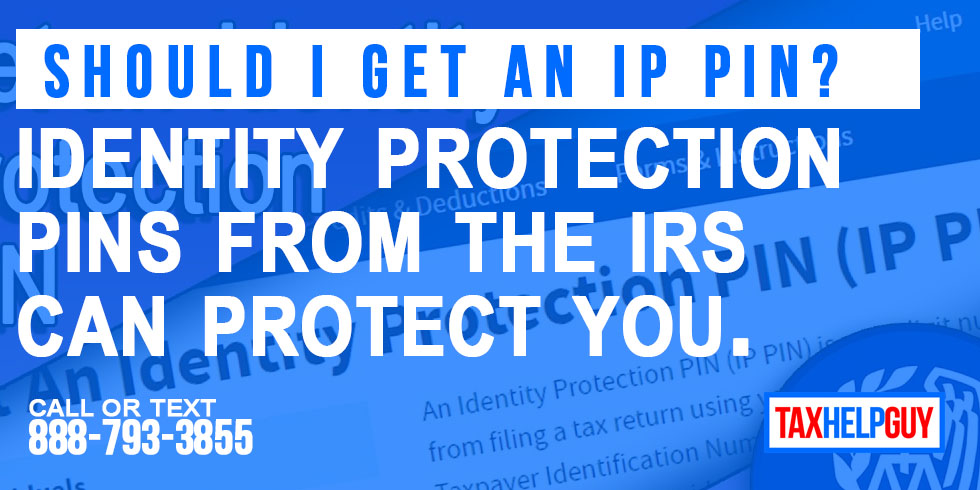
Tax season brings enough stress on its own, but when identity theft enters the picture, it can turn a routine filing into a major headache. Each year, the IRS blocks thousands of fraudulent returns filed using stolen Social Security numbers (SSNs). One of the best tools available to protect your tax return is the Identity Protection Personal Identification Number (IP PIN).
I’ll explain how the IP PIN works, who should consider using it, and why it can be especially important if you claim dependents, file as head of household, or are dealing with issues like, “my ex wife/husband took my children on their tax returns.”
What Is an IP PIN?
An IP PIN is a six-digit number issued by the IRS to prevent someone else from filing a tax return using your SSN. It acts like a second password and must be included on your federal tax return. Without the correct PIN, the IRS will reject the submission, effectively blocking fraudulent attempts to file under your identity.
Your IP PIN changes each year and is known only to you and the IRS. Even tax professionals don’t have access to it unless you give it to them.
Who Can Get an IP PIN?
While the IP PIN program was initially created for identity theft victims, it’s now available to any taxpayer who wants added protection. You don’t need to have experienced fraud to apply. As long as you can verify your identity using IRS tools, you can enroll and start protecting your tax return immediately.
Why IP PINs Matter for Families and Dependents
If you claim dependents on your tax return, an IP PIN can help protect their identities as well. For parents in contentious custody situations, this tool is crucial. Many people come to us saying, “My ex wife took my children on her tax returns without my consent.” If your child has an IP PIN, any return submitted without that PIN will be rejected by the IRS.
This feature is particularly useful for those filing as head of household, where the rightful claim of a child can mean significant tax benefits like the Child Tax Credit or Earned Income Credit.
Benefits of Enrolling in the IP PIN Program
- Stops others from filing a tax return using your SSN
- Protects your dependents from being claimed fraudulently
- Prevents delays in your refund caused by tax identity theft
- Gives you peace of mind during tax season
For parents and guardians, the extra protection for children’s identities can save you from months of IRS disputes.
Are There Drawbacks?
The biggest consideration is that once you opt into the program, you’re locked in. You’ll need to use an IP PIN every year going forward. Losing or forgetting your PIN can delay your filing since you’ll need to recover it from the IRS before you can submit your return.
Additionally, if you rely on a tax preparer, you’ll have to securely share the new PIN with them each year.
How to Get Your IP PIN
- Online: Use the IRS “Get an IP PIN” tool by creating or logging into your IRS account. Have your SSN, birth date, and some financial info handy.
- By Mail: If you can’t verify your identity online, you can complete IRS Form 15227 or visit a local IRS office in person.
Once enrolled, you’ll receive a new PIN each January.
Lost Your IP PIN? Here’s What to Do
If you lose your IP PIN, log into your IRS account to retrieve it. If you’ve forgotten your login details, you’ll need to go through identity verification again. Always store your IP PIN in a secure but accessible place to avoid delays.
Should You Get an IP PIN?
Consider enrolling if:
- You’ve been a victim of identity theft
- Your SSN was part of a data breach
- You’re a parent concerned about someone else improperly claiming your dependents
- You file as head of household and want to protect your eligibility for tax credits
- You’re saying, “My ex wife took my children on her tax returns and I want to prevent it in the future“
Even if you haven’t experienced fraud, an IP PIN adds a valuable layer of protection.
Need Help with Tax Identity Theft?
At TaxHelpGuy.com, we specialize in helping people deal with complex tax issues, including identity theft, dependent disputes, and head of household claims. If you need help enrolling in the IP PIN program or addressing unauthorized use of your dependents on someone else’s return, we’re here to support you.
By: Joseph Stacy
